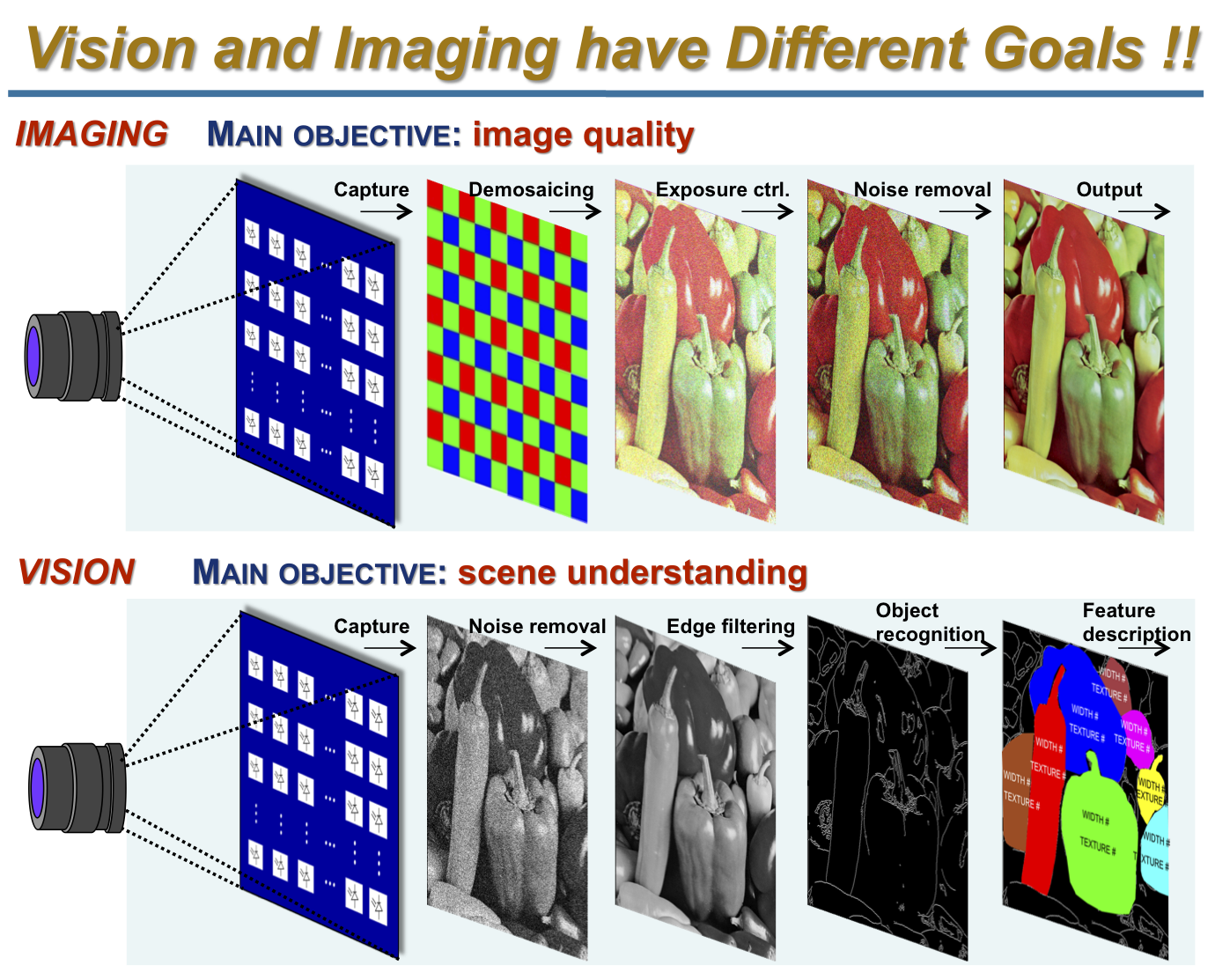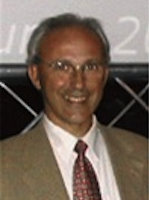Go to
Angel Rodriguez-Vazquez
Vision Beyond Imaging: Hybrid Cellular Architectures for High-Sensitivity, High-Speed, High-Resolution Vision Systems with Reduced SWaP

About the panel member:
 Ángel Rodríguez-Vázquez received a PhD degree on Physics-Electronics in 1983. He is a Full Professor of Electronics at the University of Seville and appointed for research at the Institute of Microelectronics of Seville/CNM-CSIC (IMSE-CNM/CSIC). He is also the President and the responsible for long term R&D of Innovaciones Microelectrónicas S.L. (AnaFocus).
Ángel Rodríguez-Vázquez received a PhD degree on Physics-Electronics in 1983. He is a Full Professor of Electronics at the University of Seville and appointed for research at the Institute of Microelectronics of Seville/CNM-CSIC (IMSE-CNM/CSIC). He is also the President and the responsible for long term R&D of Innovaciones Microelectrónicas S.L. (AnaFocus).
Prof. Rodríguez-Vázquez has always been looking for the balance between long term research and innovative industrial developments. He started a research unit on High-Performance Analog and Mixed-Signal VLSI Circuits of the Institute of Microelectronics of Seville/CNM-CSIC. He headed this unit until 2004, for more than 15 years, in the course of which he educated three generations of PhDs who are currently working at Academia and at Industry.
During these years, he conducted pioneering R&D activities on bio-inspired microelectronics, including vision chips and neuro-fuzzy interpolators and controllers. He was also a pioneer in the application of chaotic dynamics to instrumentation and communications; and his team completed the design and prototyping of the first, world-wide, integrated circuits with controllable chaotic behaviour and the design and prototyping of the first world-wide chaos-based communication MoDem chips. His team made also significant contributions to the area of structured analog and mixed-signal design and the area of data converter design, including the elaboration of advanced teaching materials on this topic for different industrial courses and the production of two widely quoted books on the design of high-performance CMOS sigma-delta converters.
Some 30 high-performance mixed-signal chips were successfully designed by his research unit at IMSE-CNM/CSIC until 2001 in the framework of different R&D programs and contracts. These include three generation of vision chips for high-speed applications, analog front-ends for XDSL MoDems, ADCs for wireless communications, ADCs for automotive sensors, chaotic signals generators, complete MoDems for power-line communications, etc. Many of these chips were state-of-the-art in their respective fields. Some of them entered in massive production.
He founded Innovaciones Microelectrónicas S.L. (AnaFocus) together with some colleagues in 2001 . This company started operation after raising venture capital in January 2004. He served as the AnaFocus CEO until June 2009, a period in which the company grew from 2 employees until 50 employees and reached the threshold of maturity as a worldwide company specialized in the design and production of smart CMOS imagers and vision systems-on-chip. Since June 2009 he has been back to conduce long term research activities in the areas of vision systems using 3D integration technologies and medical electronics.
Prof. Rodríguez-Vázquez has authored/edited: 8 books; around 40 chapters in contributed books, including original tutorials on chaotic integrated circuits, design of data converters and design of chips for vision; and some 500 articles in peer-review specialized publications. He has presented many invited plenary lectures at different international conferences and has received a number of international awards for his research work (IEEE Guillemin-Cauer best paper award; the IEEE ECCTD best paper award and the IEEE ISCAS best demo-paper award) and was elected Fellow of the IEEE for his contributions to the design of chaos-based communication chips and neuro-fuzzy chips.
His research work is widely quoted; his papers accumulate some 4500 quotes and he has a h-index of 32, numbers which are the highest percentile within his area of activity, worldwide. Prof. Rodríguez-Vázquez has served as Editor, Associate Editor and Guest Editor for different IEEE and non-IEEE journals; he is in the committee of many international journals and conferences; and has chaired different international IEEE and SPIE conferences.
Secondary navigation
- EPFL Workshop on Logic Synthesis and Emerging Technologies
- Luca Amaru
- Luca Benini
- Giovanni De Micheli
- Srini Devadas
- Antun Domic
- Rolf Drechsler
- Pierre-Emmanuel Gaillardon
- Jie-Hong Roland Jiang
- Akash Kumar
- Shahar Kvatinsky
- Yusuf Leblebici
- Shin-ichi Minato
- Alan Mishchenko
- Vijaykrishnan Narayanan
- Ian O'Connor
- Andre Inacio Reis
- Martin Roetteler
- Julien Ryckaert
- Mathias Soeken
- Christof Teuscher
- Zhiru Zhang
- Symposium on Emerging Trends in Computing
- Layout synthesis: A golden DA topic
- EPFL Workshop on Logic Synthesis & Verification
- Luca Amaru
- Luca Benini
- Robert Brayton
- Maciej Ciesielski
- Valentina Ciriani
- Jovanka Ciric-Vujkovic
- Jason Cong
- Jordi Cortadella
- Giovanni De Micheli
- Antun Domic
- Rolf Drechsler
- Henri Fraisse
- Paolo Ienne
- Viktor Kuncak
- Enrico Macii
- Igor Markov
- Steven M. Nowick
- Tsutomu Sasao
- Alena Simalatsar
- Leon Stok
- Dirk Stroobandt
- Tiziano Villa
- Symposium on Emerging Trends in Electronics
- Raul Camposano
- Anantha Chandrakasan
- Jo De Boeck
- Gerhard Fettweis
- Steve Furber
- Philippe Magarshack
- Takayasu Sakurai
- Alberto Sangiovanni-Vincentelli
- Ken Shepard
- VENUE
- Panel on Circuits in Emerging Nanotechnologies
- Panel on Emerging Methods of Computing
- Panel on The Role of Universities in the Emerging ICT World
- Panel on Design Challenges Ahead
- Panel on Alternative Use of Silicon
- Nano-Bio Technologies for Lab-on-Chip
- Functionality-Enhanced Devices Workshop
- More Moore: Designing Ultra-Complex System-on-Chips
- Design Technologies for a New Era
- Nanotechnology for Health
- Secure Systems Design
- Surface Treatments and Biochip Sensors
- Security/Privacy of IMDs
- Nanosystem Design and Variability
- Past Events Archive
